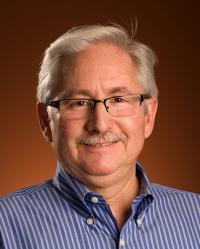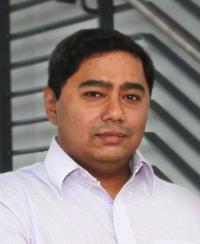Workshop on Exploring the Unexplored in Social Software Development Platforms
 Prof. David Redmiles and Prof. Iftekhar Ahmed co-organized a workshop held Friday afternoon, May 17, and all day Saturday, May 18, on current research surrounding social software development platforms. Readers will be familiar with the well-known examples of such platforms, which include GitHub and StackOverflow. These platforms allow communities of software developers to lead and join together on projects, as well as answer questions supporting software and technology use. GitHub, for instance, has become the new vehicle for hosting much of the open source software development happening today.
Prof. David Redmiles and Prof. Iftekhar Ahmed co-organized a workshop held Friday afternoon, May 17, and all day Saturday, May 18, on current research surrounding social software development platforms. Readers will be familiar with the well-known examples of such platforms, which include GitHub and StackOverflow. These platforms allow communities of software developers to lead and join together on projects, as well as answer questions supporting software and technology use. GitHub, for instance, has become the new vehicle for hosting much of the open source software development happening today.
As these platforms have evolved and grown in popularity, more kinds of participants are attracted. Seasoned developers may comprise a core of elite developers, but projects attract new developers with a range of interests and experiences. Thus, we see hints at challenges emerging around these platforms. How do newcomers find projects matching their skills and interests? How do learners get accepted to projects? How do long-running projects attract the right kinds of participants to sustain their lifecycle? How do the interfaces to these platforms encourage or discourage participation, especially among people of different genders or even personalities?
ISR faculty from four institutions along with several of their graduate students participated in the workshop: from UCI, Redmiles, Ahmed, and Prof. André van der Hoek; from Oregon State University, Prof. Anita Sarma; from Rochester Institute of Technology, Prof. Oliver Yi Wang; and from Northern Arizona University, Prof. Marco Gerosa and Prof. Igor Steinmacher. Also attending was visiting faculty member Prof. Tayana Conte from the University of Amazonas, Manaus.
 Redmiles presented new research around the behavior of top contributors and ways their roles shift over time. He also reviewed past research on the differences between men and women developers contributing to projects, as well as work on developing trust, cohesion, and positive feelings in group projects. Ahmed explored topics of expert developers, including their behaviors and their effects on software quality. Wang explained the difficulties in parsing language used amongst developers, including in commit messages. He also explained how differences in culture, individuals, and even local, project-oriented norms can confound the interpretation of intentions and emotions. Sarma challenged the attendees to think about what research methods work in this arena of social software development platforms and how user interfaces affect participation by different gender groups. Conte discussed research methods, turning the focus to both positive and negative experiences (as opposed to the more common focus on the easy to learn) as well as a theoretical approach based on communication (semiotic engineering). Steinmacher and Gerosa reviewed their research on the social challenges to newcomers participating in GitHub projects and showed positive results from a portal they have developed to help newcomers succeed in making their first contribution. van der Hoek examined the role of tools in supporting software development, particularly how chatbots might help.
Redmiles presented new research around the behavior of top contributors and ways their roles shift over time. He also reviewed past research on the differences between men and women developers contributing to projects, as well as work on developing trust, cohesion, and positive feelings in group projects. Ahmed explored topics of expert developers, including their behaviors and their effects on software quality. Wang explained the difficulties in parsing language used amongst developers, including in commit messages. He also explained how differences in culture, individuals, and even local, project-oriented norms can confound the interpretation of intentions and emotions. Sarma challenged the attendees to think about what research methods work in this arena of social software development platforms and how user interfaces affect participation by different gender groups. Conte discussed research methods, turning the focus to both positive and negative experiences (as opposed to the more common focus on the easy to learn) as well as a theoretical approach based on communication (semiotic engineering). Steinmacher and Gerosa reviewed their research on the social challenges to newcomers participating in GitHub projects and showed positive results from a portal they have developed to help newcomers succeed in making their first contribution. van der Hoek examined the role of tools in supporting software development, particularly how chatbots might help.
There was a great deal of discussion around all of these topics and the questions enumerated above. Plans were made to collaborate more specifically on white papers, proposals, research articles, and future workshops.
“I had been talking with colleagues for a long time about having this workshop,” said Prof. Redmiles. “We were all working on very close, but generally complementary aspects of research around open source software including expert developers, gender diversity, and education, among other aspects. It was a great opportunity to brainstorm on these topics and to have the input of our graduate students.”
 Ahmed reflected on the event: “Organizing this workshop with David was a new and exciting experience for me. The workshop facilitated focused discussions leading to collaborations, which as an Assistant Professor is invaluable to me.”
Ahmed reflected on the event: “Organizing this workshop with David was a new and exciting experience for me. The workshop facilitated focused discussions leading to collaborations, which as an Assistant Professor is invaluable to me.”
The workshop was funded by an “Inspiration Award” from the Dean’s Office, Donald Bren School of Information and Computer Sciences (ICS).
For more information, contact Prof. David Redmiles and Prof. Iftekhar Ahmed.



